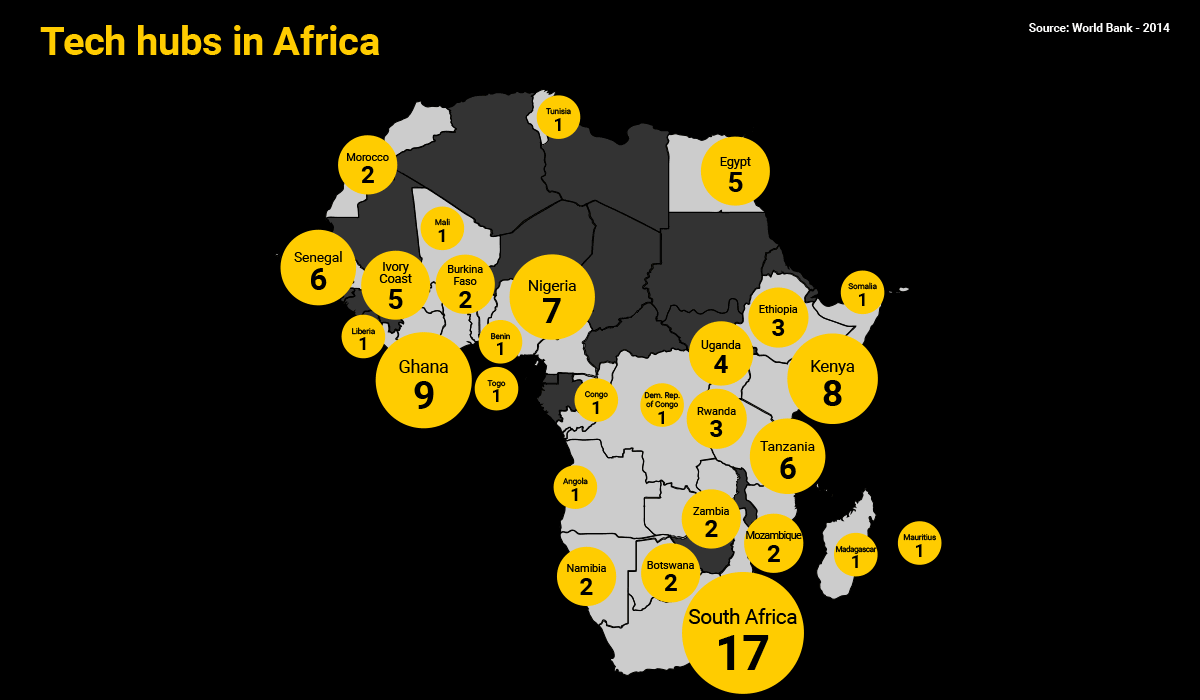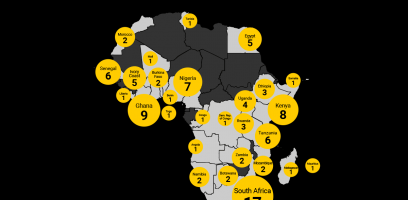In my previous blog post I touch on some of the challenges we face when considering blockchain applications in the Global South. In this post, I zoom in on the lack of tech education, job opportunities and access to technology in Africa. To help us with this we look at a Ted talk of Michael Kiberu Nagenda at the International University of East Africa in Uganda. As founder of several tech companies he has key insights in the development of tech in Africa. He urges everyone to become interested in blockchain technology, in order to not fall behind. He also highlights the lack of tech education in Africa. Something he addresses by providing tech workshops and conferences. But let’s hear from the man himself before we zoom in on some of the issues he raises. We start the video half way because I want to talk more about the second part of the video, but I recommend watching the whole talk!
Lessons about blockchain technology in Africa
If we want to work towards an inclusive blockchain landscape, we have to promote projects that originate from Africa as well. But this is a challenge in and of itself. According to a recent article by Yinka Adegoke from Rest of World, a report by the International Finance Corporation and Google made some troubling estimations. There are currently some 700,000 professional developers across Africa, with just over 50% concentrated in Egypt, Kenya, Morocco, Nigeria, and South Africa. Compare that to just the state of California in the United States, which has an estimated 630,000 developers. Further in the article Mr Adegoke explains why this may be. On the one hand, there’s a shortage of experienced local talent to help grow the market. On the other hand, when there is talent, market forces dictate that the best ones find jobs and move abroad or only work with international companies remotely. This is where entrepeneurs like Mr Kiberu come in. Providing inspiration, education and job opportunities to tech talent in Africa is key to leveling the playing field.
The digital landscape is changing
Fortunately, Mr Nadenda is not alone in providing new opportunities. In his article, Mr Adegoke mentions the Andela Learning Community, launched in 2017 and supported by the likes of Google, Facebook, and Microsoft, which offers a wider range of training opportunities to more people. While not specifically aimed at African participants, it does open up a range of recources for tech talent and enthousiasts. Other examples of online learning platforms are Coursera and edX.
 However, this also highlights the third biggest problem we face in Africa: access to technology. Check out this amazing interactive page that illustrates this issue. Here we see that internet penetration in Africa is at 18 percent, which is significantly lower than the global average of 30 percent. Moreover, only one in ten households is connected to the internet. So, while online resources are becoming more widely available, on average, people in Africa are not able to access them as much as elsewhere. We see that there is plenty of potential in Africa. But this digital divide prevents the continent from taking full advantage of digital technology’s full potential and in particular blockchain technology.
However, this also highlights the third biggest problem we face in Africa: access to technology. Check out this amazing interactive page that illustrates this issue. Here we see that internet penetration in Africa is at 18 percent, which is significantly lower than the global average of 30 percent. Moreover, only one in ten households is connected to the internet. So, while online resources are becoming more widely available, on average, people in Africa are not able to access them as much as elsewhere. We see that there is plenty of potential in Africa. But this digital divide prevents the continent from taking full advantage of digital technology’s full potential and in particular blockchain technology.
What do you think?
We covered some of the biggest issues we face in building an inclusive global blockchain landscape. How do you think we can address these issues? Do we need more visionairies like Michael Kiberu Nagenda? Or can solutions come from the likes of Google, the International Finance Corporation and other Global North institutions? Let me know in the comments!
Next up!
My next blog post will be dedicated to covering these issues even more in-depth. I will also discuss additional problems we may face when we talk about building truly inclusive and participatory solutions. But be warned! That is going to be a thick post, so better get another espresso ready!


